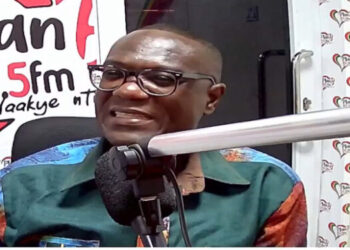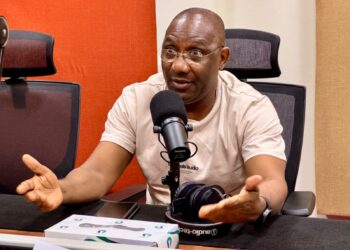ASHADOW report on the mental health and human rights situation in the country by 32 nongovernmental organisations (NGOs), has called on the Mental Health Authority (MHA) to establish a visiting committee to monitor the activities of traditional and faith-based healing centres, otherwise known as prayer camps in the country.
It explained that the failure of the MHA to put in place the committee, which it was mandated to do under the Mental Health Act, had empowered some of the prayer camps to continue to engage in practices that undermined the rights of persons with mental health conditions under their care.
According to the Mental Health Act, the visiting committee was expected to monitor institutions and persons involved in the delivery of mental health services including, prayer camps. “This has not been set up and we do not know what is stopping it from being established,” disclosed the lead facilitator for the drafting process of the NGO joint shadow report, Wendy Abbey.
Review process
The call for the setting up of the committee was part of the challenges identified in the report, which was expected to be submitted to the United Nations Human Rights Council as part of the Universal Periodic Review Process.
The Universal Periodic Review Process is organised every four years for all the 194 United Nations (UN) member states to review their human rights situation. It was established in 2006 following the adoption of the UN General Assembly Resolution 251.
Ghana’s human rights situation had been reviewed three times by the Council — 2008, 2012 and 2017. Under the resolution, aside from the state submitting its own human rights situation report, civil society organisations or non-governmental organisations (NGOs) were also expected to submit a joint shadow or alternative report to counter or confirm that of the state. Ghana had 48 hours from July 14, to submit the 2022 shadow report.
MindFreedom Ghana, an NGO in the country, spearheaded the collection of information for the joint shadow report from the NGOs and the findings were presented to various stakeholders in mental health delivery in the country in Accra.
Ms Abbey disclosed that 1016 prayer camps had been identified in the country according to the MHA report for 2020, and of this number, the MHA was able to visit only three between 2019 and 2020.
“What we are seeing is that once the oversight body responsible for the monitoring of mental health service delivery by these operators is not there, then an opportunity is created for them to continue to engage in practices that undermine the rights of persons in their care,” she pointed out.
Recommendations
Ms Abbey listed the recommendations in the report to include an urgent call on the Ministry of Finance to institute a mental health levy that would resource the mental health fund; a call on the MHA to lead nationwide consultations on devising innovative strategies to raise financial support to resource the fund; increase support for mental health care at workplaces to improve treatment gaps and the raising of awareness on the LEAP programme as a poverty reduction mechanism for households and individuals suffering from severe mental health conditions.
Responding to the non-establishment of the visiting committee, the Chief Executive Offi cer of the MHA, Prof. Akwasi Osei, explained that initially, the authority had some challenges including, funding and that was why the committee was not in place.
In an address read on behalf of the United Nations Resident Coordinator, Charles Abaani, by Dr Sofonias Asrat, he encouraged Ghana to take steps to implement some of the key recommendations in the third Universal Periodic Review which included, a call for urgent steps to be taken to focus on mental health interventions for children and adolescents and to improve their access to mental health services.










Discussion about this post